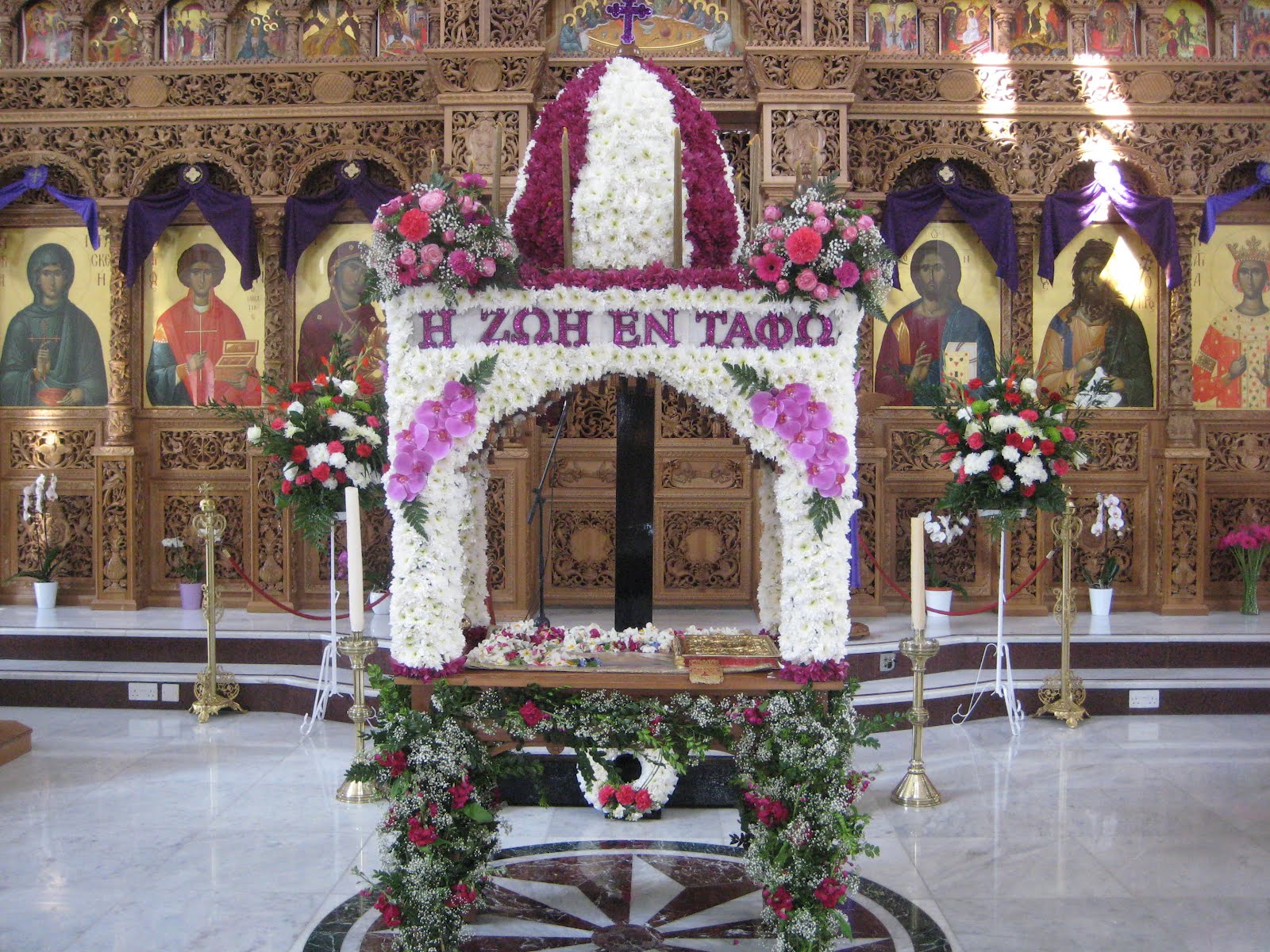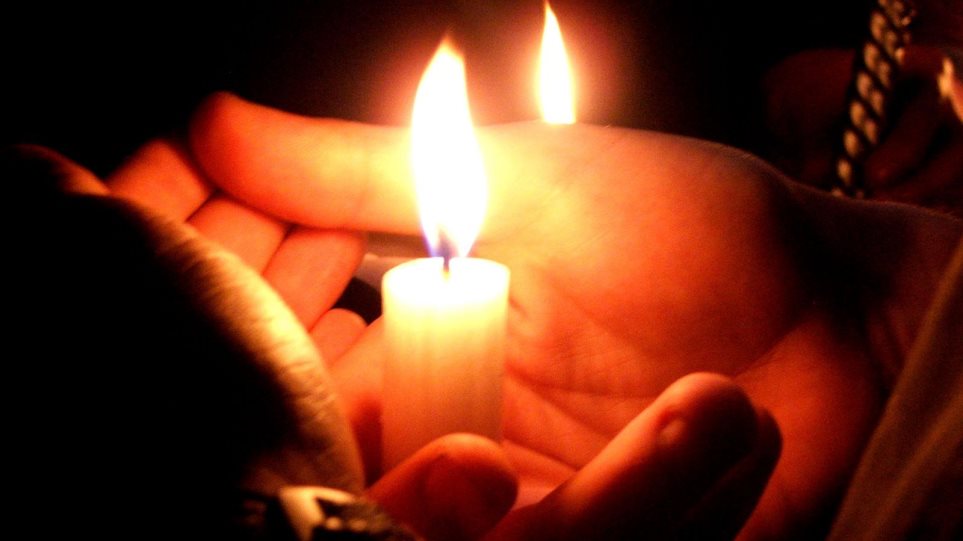The Greek Holy Week
The most shocking week in human history is undoubtedly Holy Week. Deeply theological and especially all-encompassing, it is a source of renewal and mental purification for all Christians, who, participating in the sacred services of these days, experience the mystery of the redemption of the human race. It is no secret that Holy Week, always in combination with the joyous celebration of Easter, is the most important period of Orthodox worship. It is a weekly mystical process, which leads the believer to experience the saving Passion of Christ and to fill the divine economy around man for his salvation.
In specific, Holy Week is the week just before Easter that extends from Palm Sunday until Holy Saturday and marks the last week of Lent. It has earned the name ‘Holy’, according to the Orthodox Church, due to the significant events that take place for Christianity in regard to the sufferings of Jesus Christ. During this week every year, believers prepare themselves for Jesus Christ’s Resurrection by abstaining from meat as well as most animal-derived products.
Greek Easter Traditions
Nowadays, Lent is not strictly followed -or even followed at all- by most people for the whole duration of Lent, but only during Holy Week. Regardless of people’s religious beliefs in Greece, however, most Easter traditions have been kept alive due to their customary nature and fun elements.
Holy Monday to Holy Wednesday

From Holy Monday to Holy Wednesday, there are no typical traditions that take place outside of the church. Holy Monday is dedicated to two events: The life of Joseph, son of Patriarch Jacob, who was sold as a slave in Egypt, and the adventures of whom reflect the life of Christ and his sufferings.
It is also dedicated to the tale of the fruitless fig tree that Christ dried, with the fig tree symbolizing the soul of every human who lacks virtue. Holy Tuesday is dedicated to the parable of the ten virgins that aims to teach people to be full of faith and charity, as well as the parable of ‘Taladwn’, which aims to teach people to be hardworking and cultivate their spirituality.
Holy Wednesday is dedicated to Mary Magdalene, who regretted her life of sin, washed Christ's feet with myrrh, and was forgiven because of her strong faith.
Holy Thursday – Red-Dyed Eggs

On Holy Thursday, Christianity celebrates the Last Supper of Jesus Christ with the twelve Apostles. In commemoration of the Last Supper, on Holy Thursday the preparations for Jesus Christ’s resurrection are underway in the Greek houses. According to tradition, people make Easter cookies -or ‘koulourakia’ in Greek- and dye hard-boiled eggs red.
Eggs have been a symbol of the renewal of life since antiquity, while the color red symbolizes Christ's blood. In recent years, families follow the tradition of dying red eggs for Greek Easter but enrich it by dying them also all kinds of colors, and the kid of the families undertake the task of decorating them with stickers and various other materials.
The dyed eggs are not supposed to be eaten until the night of Holy Sunday after the resurrection of Jesus takes place. Following Holy Thursday’s evening mass, after the reading of the Twelve Gospels, some people undertake the decoration of the Bier of Christ (epitaph) with flowers of various colors and sizes, so that in the morning of Holy Friday, when Jesus is taken down from the Cross, the epitaph is ready to hold the image of his body.
Holy Friday – the Bier of Christ
Holy Friday is a day of mourning, on which both morning and an evening masses are being held. At the morning mass, the body of Christ is taken down from the Cross; the priest covers it with a white sheet and places it in the Bier. The Bier itself symbolizes the tomb of Jesus Christ. People kneel before the empty cross and osculate it.
During the evening mass, most of the religious ritual occurs outside the church, a rare occurrence for an Orthodox sacramental ritual. According to tradition, the ornate epitaph gets carried out of the church by four men accompanied by young girls who hold baskets full of rose petals.
The girls are usually dressed in white dresses and are called ‘Myrrhofores’, which translates to ‘the girls/ladies who bring the holy oil’. The priest leads the march and the believers follow holding a candle in their hands as an expression of commiseration to Christ’s death.
The march terminates in the church, where the crowd shapes a circle and the Bier of Jesus Christ is held on the shoulders of its carriers before the church’s entrance so that every single believer has the chance to enter the church by passing under it; and therefore, get its blessing. On some Greek islands, such as Hydra and Tinos, the Bier of Christ is also taken to the sea, so that it blesses the waters and protects the local seamen.
Holy Saturday - Jesus Christ’s Resurrection

On the night of Holy Saturday, people go to church in formal outfits holding their personal Greek Easter candles. The votive candles are given to the kids as a gift by their godmothers and godfathers, while the beauty and distinctiveness of each candle are of paramount importance to them. The mass on Holy Saturday night is a truly unique experience.
It’s the one and only religious ritual that the vast majority of Greeks attend. The peak of the night is around midnight when the hymns that are being sung get soft like whispers and everyone gets ready for the glorious moment ahead, Jesus Christ’s resurrection! The priest comes out of the chancel holding the holy fire and shares it with the enthusiastic believers who wait patiently. He invites people telling them to “come to get the light!”. People pass the fire to each other and even the very last votive candle is lit before everyone starts leaving the church to get the holy fire to their house.
The atmosphere becomes really festive and the sky is lit with fireworks. Upon returning home, it’s time for the Greek Easter egg cracking tradition, where each person picks an egg and clinks it against the egg of someone else. Together, the participants say to each other:
- “Christ has risen!”- “Truly, he has risen!”
Afterward, the traditional dinner of ‘Mageiritsa’ -a Greek Easter soup made of lamb intestines and lettuce- is served and the family gathers around the table to wholeheartedly enjoy their first meat-based meal after Lent.
Easter Sunday – The Traditional Spit-Roasted Lamb of Greek Easter
Easter Sunday is the main reason why people believe that Easter is all about family. Greeks love going out with friends, being independent, and traveling abroad, yet, Easter is a synonym for ‘family’ for them. Almost everyone in Greece visits their grandparents’ village during Easter and especially on Easter Sunday.
On that special day, brothers and sisters, cousins, parents, and grandparents –the whole kinfolk– gather to grill lamb and dine all together. The fast is over, so grilled lamb, as well as other meat-based recipes and Greek Easter treats, like ‘kokoretsi’, a dish consisting of lamb or goat intestines wrapped around seasoned offal, including sweetbreads, hearts, lungs, or kidneys, and typically grilled, are definitely on the menu.
Traditional Greek folk music can be heard everywhere throughout Greece and people indulge in lots of food while drinking and dancing the day away. It’s the perfect chance for family members to reunite!
The meaning of 'Kali Anastasi'
'Kali Anastasi' in Greeks translates to 'Happy resurrection' in English. This is the most widespread wish used only by Greek-speaking Orthodox. Nowadays this wish more seems to mean 'have a good celebration' and it is exchanged on Easter Sunday and many days after it.
Greek Easter decorations
Much like Christmas, Easter, another religious holiday, is characterized by the decorations it brings with it. Unlike Christmas, which brings a range of colorful, bright, and striking home decorations, Easter does not have a clear decorative line. Of course, this period also has very typical practices, such as the Greek Easter red eggs, traditional easter cookies, and fluffy 'tsoureki' dessert, that often decorate our space, but also symbols such as the hare and the hens, however, you will never find trees. and ornaments and lights. And to be honest, you do'n't even need all that! Because Easter has the benefit of being during spring, with the blooming nature, and the bright colors at its side.Decorate your home with huge rabbits, strange decals on painted eggs, paper garlands, yellow chickens, chopped corrugated paper, and various other cheesy items you love.
Easter is the greatest celebration of the Orthodox Church and, at the same time, the most cherished family time for Greeks. If you have seen the popular movie ’My Big Fat Greek Wedding’, you may get a good understanding of how a typical Easter gathering would look like: the funny family reunions in the scenes of this movie, although dramatized, are actually rather close to reality! If you plan on being in Greece during Easter, consider yourself lucky; Easter in Greece is something you should experience at least once in your lifetime!
This article was originally posted on: https://greeking.me/blog/greek-history-culture/item/244-greek-easter-traditions-during-holy-week?fbclid=IwAR0CSuzwuA6qMJ5ltLAiFs7rpaq4ToLx9TzgdrXnZV2SskY465M6aOECj38
All credits go to: Greeking.me and its authors


 We look forward to meeting you and welcoming you at our home.
We look forward to meeting you and welcoming you at our home. 
